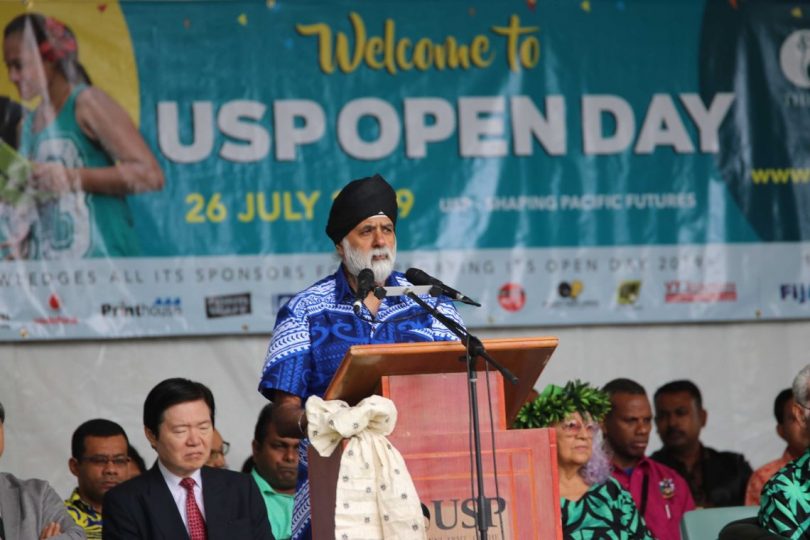After 55 years of teaching, a big question facing the University of the South Pacific (USP) is whether it might be time for more than just simple reforms, but for closing it down. When it was founded at an old New Zealand air force base in Fiji in 1968, the concept of regional universities was greatly favoured by aid donors. They were not necessarily useful for the recipient countries who made up the membership of each regional group. Pointedly the leadership of countries like Fiji, Samoa and Tonga went to universities in Australia and New Zealand.
USP’s current problems were sparked by its host government of Prime Minister Voreqe Bainimarama and his side-kick Aiyaz Sayed-Khaiyum. They refused to pay Fiji’s considerable dues to USP, claiming the institute was corrupt and needed reform. Other Pacific countries were unimpressed with Fiji’s position, but mostly powerless to do anything about it.
It came to a crisis a couple of years ago when Sayed-Khaiyum (who has now vanished) had USP vice-chancellor Pal Ahluwalia expelled from Fiji. For a time it looked as if Sayed-Khaiyum might even try seizing and nationalising USP. But when Nauru and then Samoa gave shelter and support to Ahluwalia, Fiji got the message to back off. When the Sitiveni Rabuka government came to power the USP dues were paid, and Ahluwalia was allowed to return to Fiji. But that is where a new problem has arisen.
Ahluwalia has decided he lives in Samoa, and collects his salary there, and then spends much time in Suva collecting eye-wateringly large per diem payments. Ahluwalia says he earns a salary of A$344,389 (F$534,000) which is not especially extravagant for that level of job globally, even if USP is a small and seemingly diminishing university. In Samoa the salary is paid out tax free. When he was living in Suva, tax was deducted.
Already ahead, Ahluwalia and his wife fly into Suva where each week, per person, they collect F$4300 as a per diem. There is no suggestion of anything improper; it is the legal system USP has put in place. New problems are emerging, not least the employment, without advertising, of a mostly incompetent Bainimarama cabinet minister, Mahendra Reddy. USP Samoa is in appalling shape now, and other USP Fiji is having trouble attracting students.
Unlike in 1968, a number of the USP member countries now have their own universities. For entirely nationalistic reasons, governments prefer supporting their own institutions. Seems too that international aid donors are willing to support such universities.
USP came into existence when travel and communications between Pacific countries were somewhat heroic and difficult. Increasingly today Pacific countries are on high data fibre cables and low orbit satellite connections. A rationale for USP is vanishing.
And it’s worth noting too that these days’ students don’t have to go to Cambridge Massachusetts to get a Harvard degree. Increasingly the big global university players are spreading out. Tonga or Kiribati or any other Pacific state no longer has to limit its aspirations to USP… Being digitally connected to the world doesn’t just mean better Facebook.






